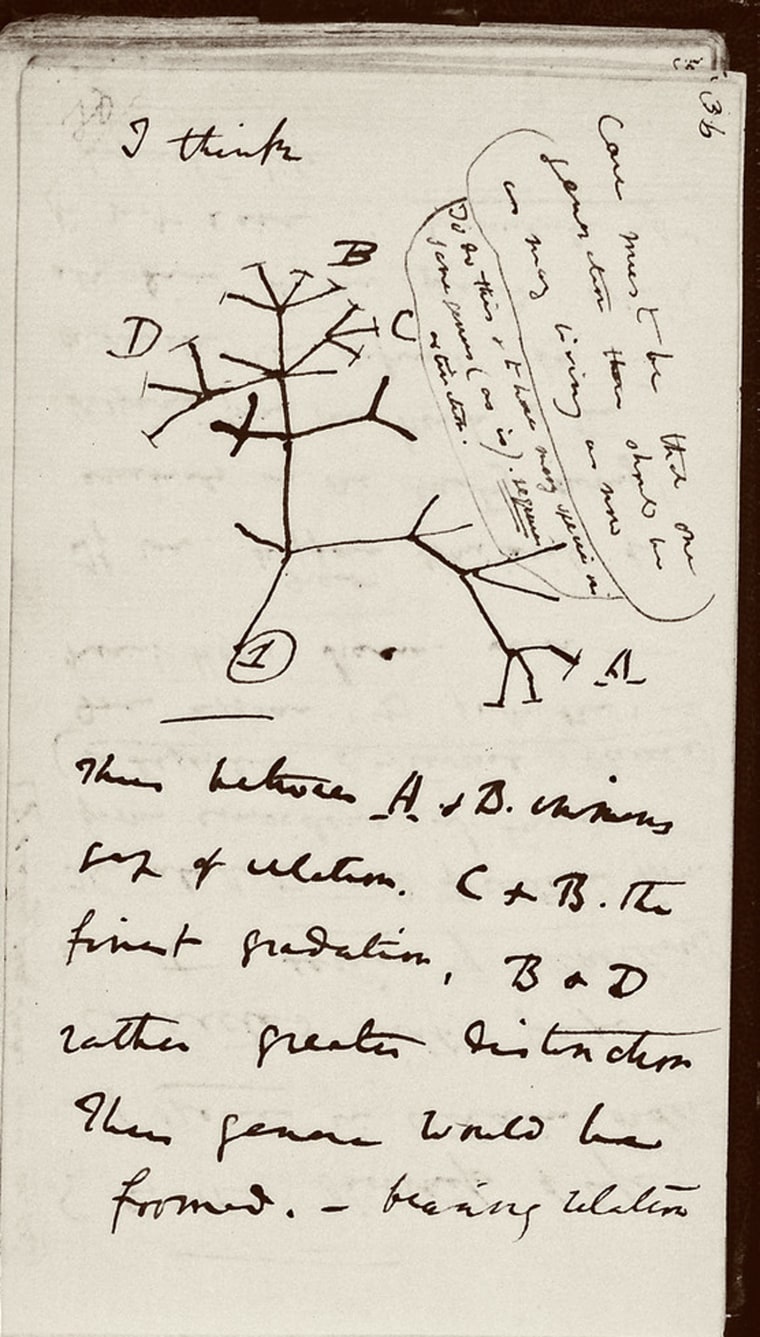Two notebooks written by the famed British naturalist Charles Darwin in 1837 and missing for years may have been stolen from the Cambridge University Library, according to curators who launched a public appeal Tuesday for information.
The notebooks, estimated to be worth millions of dollars, include Darwin’s celebrated “Tree of Life” sketch that the 19th-century scientist used to illustrate early ideas about evolution. Officials at the Cambridge University Library say the two notebooks have been missing since 2001, and it’s now thought that they were stolen.

“I am heartbroken that the location of these Darwin notebooks, including Darwin’s iconic ‘Tree of Life’ drawing, is currently unknown, but we’re determined to do everything possible to discover what happened and will leave no stone unturned during this process,” Jessica Gardner, the university librarian and director of library services, said in a statement.
The manuscripts, known as the Transmutation Notebooks, were written by Darwin after he returned from circumnavigating the world aboard the HMS Beagle. The ambitious survey mission, conducted between 1831 and 1836, helped shape the scientist’s views about species classification, natural selection and evolution.
Darwin’s seminal work, “On the Origin of Species,” was published more than two decades after he scribbled out his iconic “Tree of Life” sketch in one of the missing notebooks.
The lost manuscripts were initially thought to have been misplaced in the university’s enormous archives, which house roughly 10 million books, maps and other objects. But an exhaustive search initiated at the start of 2020 — the “largest search in the library’s history,” according to Gardner — failed to turn up the notebooks and they are now being reported as stolen.
Cambridge University officials said a police investigation is underway and the notebooks have been added to Interpol’s database of stolen artworks.
The library is also asking for the public’s help for information about the lost notebooks.
“Someone, somewhere, may have knowledge or insight that can help us return these notebooks to their proper place at the heart of the U.K.’s cultural and scientific heritage,” Gardner said.
Information about the missing notebooks can be reported to the Cambridge University Library at ManuscriptAppeal@lib.cam.ac.uk or filed anonymously to the Cambridgeshire Police or Crimestoppers.
